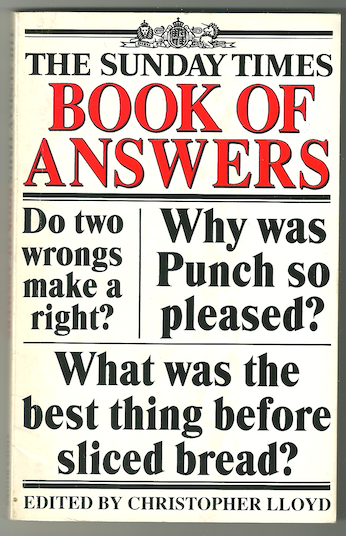
Tony Body of York wanted to know the origin of the political terms left wing and right wing ?
Some may have guessed that the terms had something to do with football, but Mr Ross Ferguson-Ford of Stirling University seemed certain that the two terms could ‘ clearly be traced back to Revolutionary France in the last decade of the eighteenth century’.
‘In the legislative assembly of the French Republic, the convention was dominated by two factions—the Montagnards and Girodins. As a result of their respective beliefs and the seating arrangements of the Assembly ( the former sat to the left of the chamber and the latter to the right ), the labelling of political beliefs according to left/right polarity was instigated.
However, neither was a political party , despite the Montagnardas showing the first traits of socialism in the form of the Jacobin splinter group, and the application to them of the terms ‘ left wing’ and ‘right wing’ in their modern sense is inappropriate’.
Most commentators agree that this was the origin of the terms.
Why do most countries drive on the right? The Sunday Times wanted to know this.
Richard Sotnik put the blame on Napoleon for this. Before he became a dominant influence in Europe ‘it was customary to drive or ride on the left hand side. Historically this was to enable the great majority of persons to draw their sword against an oncoming opponent.’
‘ Napoleon modernised this thinking in marching his armies south to Italy. In order to gain time he took advantage of the cool of the shadows of the trees in the strong afternoon sun and therefore obtained extra kilometres. Naturally Britain declined to acknowledge this crude upset to tradition.
Most of the other correspondents to the Sunday Times agreed that Napoleon was the culprit, though no-one else felt that he chose the right handed side because he wanted to take advantage of the cool shadows of the roadside.
Why does the fair hair of so many children darken as they mature ?
Mr James Ellinthorpe of Wiltshire asked this very good question, which your Jotter, whose own golden auburn hair at twenty has now turned to a rather boring shade of dark brown.
Mr Patrick James, whose answer possesses the erudition of a trichologist, explains thus:
Hair and eye colour are interrelated. Colouring depends on two pairs of genes, each pair of the same chromosome but fairly far apart. ‘E’ would represent dominant dark eye; ‘e’ light eye ’H’ would be dark hair and ‘h’ light hair. Thus:
HHEE—dark hair, dark eyes
HhEE — medium dark hair, dark eyes
HHee— medium dark hair, hazel eyes
HhEe—–variable
EEhh—–Fast cynope( brown eyes, blond hair)
Eehh——slow cynope
eeHH—–fast glaucope (blue eyes , dark hair)
eeHh——slow glaucope
eehh ——blond
Continue reading
